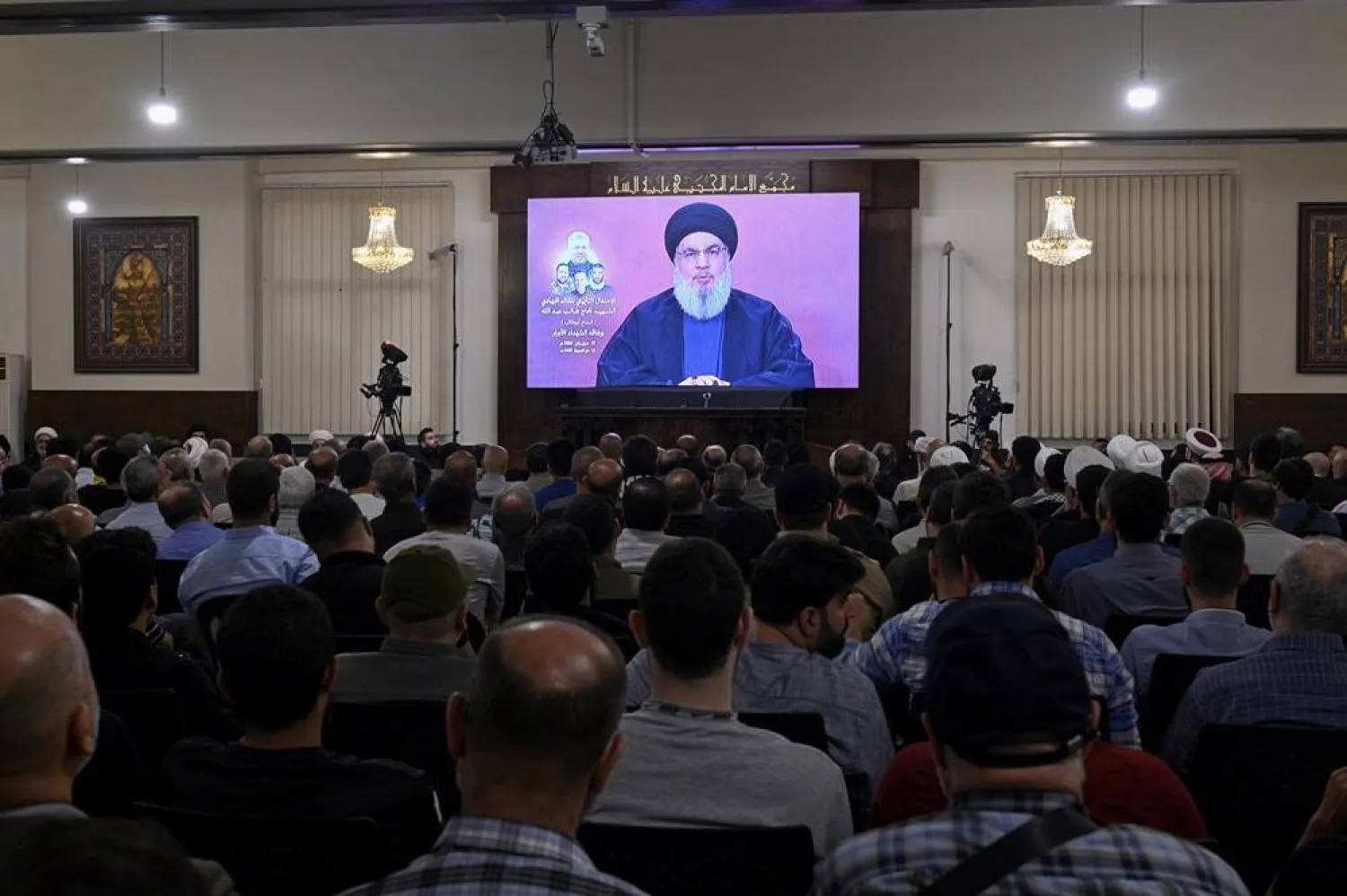The head of Lebanon's Hezbollah said on Wednesday that nowhere in Israel would be safe if a full-fledged war breaks out between the two foes, and he also threatened Cyprus and other parts of the Mediterranean.
Hezbollah has been trading fire with Israel for more than eight months in parallel with the Gaza war. On Tuesday, the Iran-backed group published what it said was drone footage of sensitive military sites deep in Israeli territory.
In a televised address on Wednesday, Hezbollah chief Hassan Nasrallah said "there will be no place safe from our missiles and our drones" in Israel in the event of a broader war.
The group also had "a bank of targets" that it could target in precision strikes, he said.
Israel "knows that what also awaits it in the Mediterranean is very big...In the face of a battle of this magnitude, it knows that it must now wait for us on land, in the air, and at sea," Nasrallah added.
The group first showed it could hit a vessel at sea by striking an Israeli warship in the Mediterranean during their 2006 war.
Reports by media and analysts have for years indicated that Hezbollah acquired Russian-made anti-ship Yakhont missiles in Syria, after its forces deployed there more than a decade ago to help President Bashar al-Assad fight the country's civil war.
Nasrallah also threatened Cyprus for the first time, accusing it of allowing Israel to use its airports and bases for military exercises.
"The Cypriot government must be warned that opening Cypriot airports and bases for the Israeli enemy to target Lebanon means that the Cypriot government has become part of the war and the resistance (Hezbollah) will deal with it as part of the war," Nasrallah said.
There was no immediate comment from authorities in Cyprus.
Cyprus is not known to offer any land or base facilities to the Israeli military, but has in the past allowed Israel to use its vast airspace - its flight information region (FIR) - to occasionally conduct air drills, but never during conflict.
Sovereign British military bases have been used by the United Kingdom for operations in Syria and more recently, Yemen. The Cyprus government has no say in the matter. There are two British bases in Cyprus, which was a colony until 1960.
Nasrallah said his group would fight with "no rules" and "no ceilings" in the event of a broader war. He was speaking at a memorial event for a commander killed in an Israeli strike last week - the most senior Hezbollah figure to be killed so far in the current conflict with Israel.
Hezbollah unleashed its largest volleys of drones and rockets at Israel in retaliation. UN officials expressed concern at the escalation, and US envoy Amos Hochstein traveled to Israel and Lebanon to urge both sides not to move into a full-scale conflict.









